 Amazing cliff diving in cold winter
Amazing cliff diving in cold winter
 Haiyang Yangge: make up
Haiyang Yangge: make up
 Enjoy Sochi 2014 in slow motion
Enjoy Sochi 2014 in slow motion
 China's top 10 richest cities
China's top 10 richest cities
 President Xi visits garrison troops in Inner Mongolia
President Xi visits garrison troops in Inner Mongolia
 Turnip sculptures amaze tourists in Qingdao
Turnip sculptures amaze tourists in Qingdao Chinese ship formation conducts live fire training in West Pacific
Chinese ship formation conducts live fire training in West Pacific
 China comes in third at figure skating team event
China comes in third at figure skating team event
 China's teenager skater Yan shines at his Olympic debut
China's teenager skater Yan shines at his Olympic debut
BEIJING, Feb. 19 -- As China's anti-graft war picks up momentum, a nationwide crackdown on the sex trade has become a key part of the nation's efforts to root out entrenched corruption.
The campaign is targeted at uncovering the corruptive forces who have protected or connived with this underground industry that continues to run wild despite repeated attempts at containment.
Police were asked to focus on seizing organizers, operators and the "protective umbrella" of the sex trade and seriously punish police leaders and staff found to be guilty of involvement.
Officials' acquiescence and police protection, the so-called "protective umbrella," are widely believed to have allowed the industry to boom.
By Monday evening, police working on the prostitution crackdown had apprehended 501 suspects and busted 73 gangs nationwide. More than 1,300 cases of organizing or soliciting sex services have been opened and 2,410 venues shut down.
The clampdown quickly went national, following police raids on Feb. 9 in south China's Dongguan just a few hours after media exposure.
In the Dongguan case, Yan Xiaokang, vice mayor of Dongguan and head of the city's Public Security Bureau, was removed from his post for dereliction of duty last Friday. Local deputy police head Lu Weiqi and several other officials were also sacked.
In addition, a number of people affiliated to the government were exposed as engaged in the sex trade. State television reported that Liang Yaohui, a deputy to the national legislature, runs a five-star hotel involved in prostitution.
Prostitution is regarded as immoral in China and is bound to involve social corruption, organized crimes, abduction and trafficking of women, violence and gangs.
However, local governments are ambivalent toward the sex trade, which, in the case of Dongguan, is believed to be a substantial contributor to the city's economy and employment.
Usually a hotbed for corruption has been bred as a consequence of this compromise by local government and consequent bribery and collusion by officials and businessmen.
Since China's new leadership assumed office last year, the corruption fight has always remained one of its top tasks.
Addressing a disciplinary meeting in January, Chinese President Xi Jinping described corruption as "a disease that calls for powerful drugs." He reiterated zero tolerance of graft and promised to seriously punish every corrupt official.
There has been some criticism of China's sex trade crackdown. However, with the deepening of the campaign and the capture of more corrupt figures, such voices will surely weaken.
 Most gorgeous female celebs in Chi-pao
Most gorgeous female celebs in Chi-pao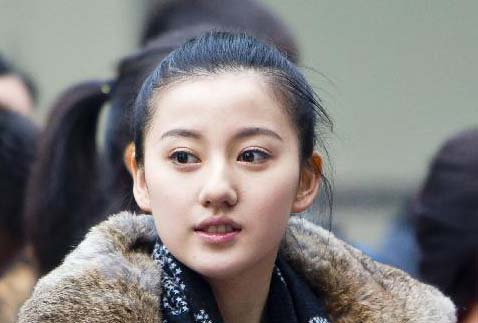 Second round of test kicks off at Beijing Film Academy
Second round of test kicks off at Beijing Film Academy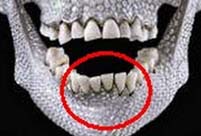 Ancient Qiang people had vertically grown teeth
Ancient Qiang people had vertically grown teeth Top 10 Chinese youth’s favorite seaside destinations
Top 10 Chinese youth’s favorite seaside destinations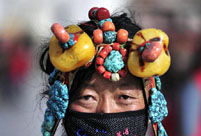 Traditional Tibetan clothing tailors
Traditional Tibetan clothing tailors In photos: Unveiling Taishan station
In photos: Unveiling Taishan station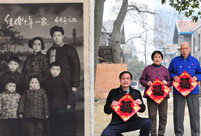 Beautiful moments of family reunion
Beautiful moments of family reunion 10 Valentine's Day ideas for couples
10 Valentine's Day ideas for couples Let's get married today!
Let's get married today!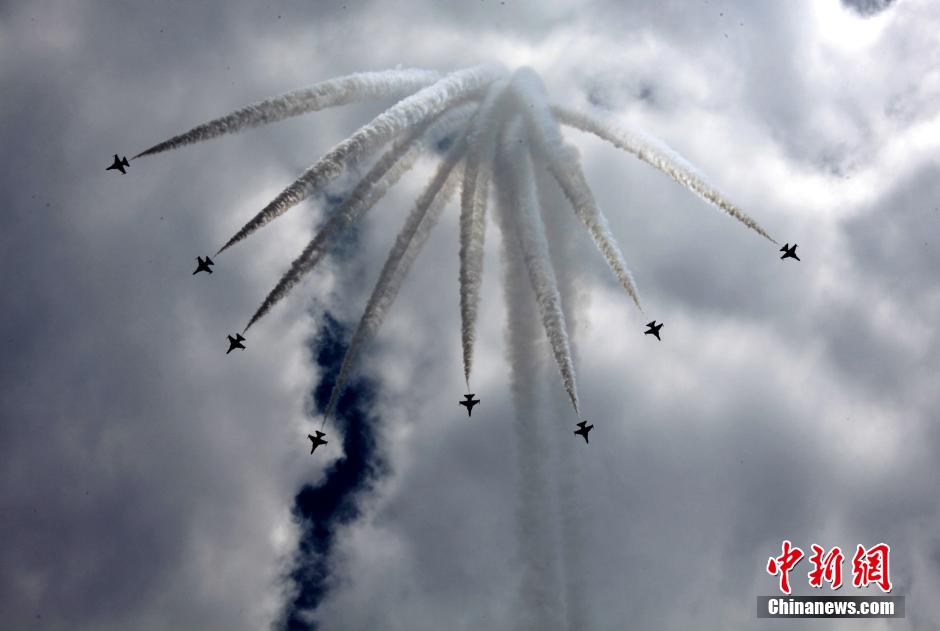 Chinese warplanes C919 to appear at Singapore Airshow 2014
Chinese warplanes C919 to appear at Singapore Airshow 2014 Ruins of Shang Dynasty's structure unearthed in Shaanxi
Ruins of Shang Dynasty's structure unearthed in Shaanxi  Intercity high speed train in operation
Intercity high speed train in operation Severe coldness freezes large parts of China
Severe coldness freezes large parts of China  Beautiful moments of Sochi
Beautiful moments of Sochi  It's not just performing this year
It's not just performing this yearDay|Week|Month